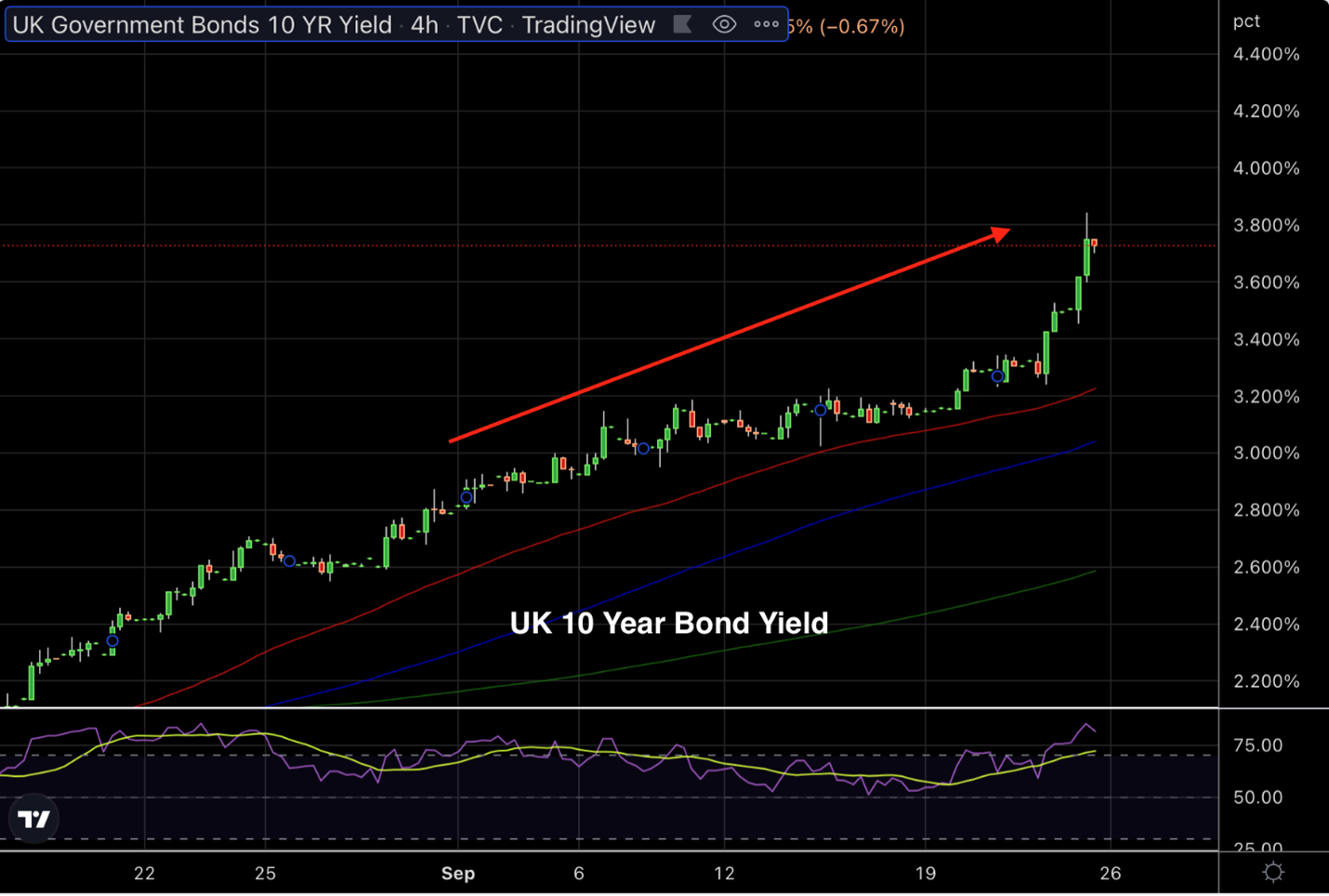Investors flee both stocks and bonds sending the US dollar to a multi-year high

Bond and equity markets’downward rally intensified on Friday amid signs of escalation of the conflictin Ukraine. The two sides of the conflict have moved to raise the stakes,Russia is going to hold referendums in the occupied territories while the EU isgoing to accelerate for the introduction of a energy price cap (which may havea reaction from Russia in the form of export duties on energy), investors bracefor a recession in the EU and the UK anticipating a surge in government borrowingand spending intended to smooth the impact of the energy shock, and are thereforedumping sovereign debt. Yield on UK 10-year bond have risen by nearly 1% sinceearly September:

At the same time, the poundsterling fell by almost 2% on Friday to 1.1050. The pound has become much morevulnerable to a fall after the Bank of England decided on Thursday to raiserates by just 50 basis points, well behind the Fed or the ECB in the tighteningrace. Adding to the negative news, the Monetary Policy Committee was in favorof an even smaller rate increase, by only 25 bp. UK sovereign debt is rapidlybecoming unattractive to investors.
The growth of fears of arecession in the world is best seen in the dynamics of the commodity market.Oil quotes collapsed on Friday by an average of 5% on expectations of aslowdown in demand for energy. WTI is trading below $80 a barrel, the lowestlevel since January.
Goldman Sachs cut itsyear-end target for the S&P 500 by 16% to 3,600. The Bank's analystsbelieve that a "hard landing" of the economy (lowering inflation dueto a recession) is inevitable and that investors need to focus on the magnitude,duration and timing of the recession. Most fund managers surveyed by GoldmanSachs believe that in order to quell inflation, the Fed will need to raiserates to levels that will trigger a recession in 2023.
Bank of America, in turn,warned that the worst outflow experienced by the global sovereign debt marketsince 1949 has dramatically increased the likelihood of defaults and forced liquidationsin crowded trades with investors.
Based on EPFR data, BoFAreported that investors withdrew $6.9 billion from sovereign debt funds in theweek ending Wednesday. Equity funds posted a $7.8 billion outflow. At the sametime, investments in cash grew by $30.3 billion. Investor expectations havefallen to their lowest level since the 2008 financial crisis.
Disclaimer: The material provided is for information purposes only and should not be considered as investment advice. The views, information, or opinions expressed in the text belong solely to the author, and not to the author’s employer, organization, committee or other group or individual or company.
Past performance is not indicative of future results.
High Risk Warning: CFDs are complex instruments and come with a high risk of losing money rapidly due to leverage. 73% and 72% of retail investor accounts lose money when trading CFDs with Tickmill UK Ltd and Tickmill Europe Ltd respectively. You should consider whether you understand how CFDs work and whether you can afford to take the high risk of losing your money.
Futures and Options: Trading futures and options on margin carries a high degree of risk and may result in losses exceeding your initial investment. These products are not suitable for all investors. Ensure you fully understand the risks and take appropriate care to manage your risk.